Great Yarmouth: Endless skies, endless rides and the evolution of the Great British seaside holiday
The British seaside has had a memorable year with more people holidaying in the UK than there have been for years — and Great Yarmouth, the classic resort on the Norfolk coast, is making the most of it. Toby Keel took his family to pay a visit.
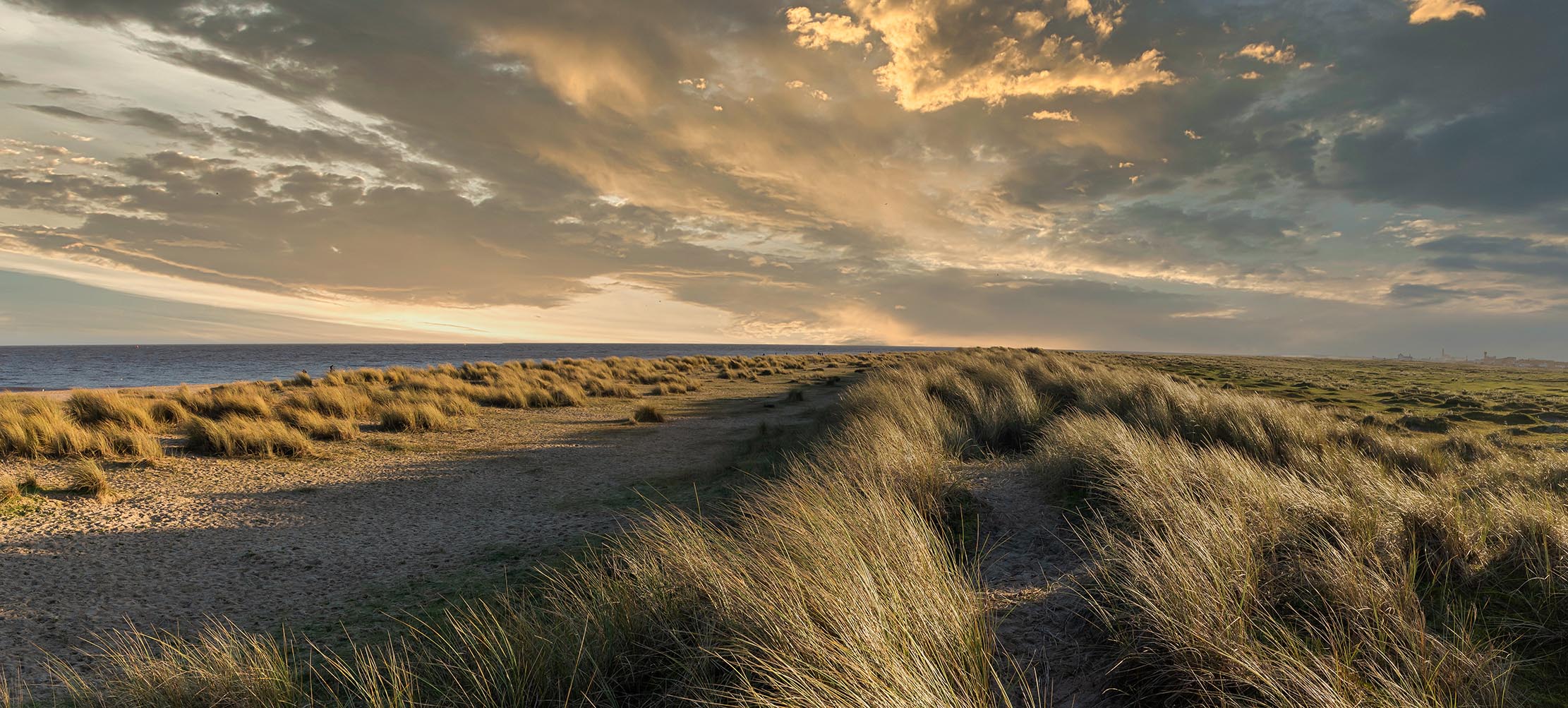
The sun is shining, a brass band is playing in the beautiful gardens around us and I’m pouring a cup of tea from a metal pot. All this comes after a morning on rollercoasters, dodgems and something called a ‘Sky-Drop’, which seemed intent on plunging me and my daughter to our doom; later, we’ll head to the beach, go for a swim, and round the day off with a visit to the circus.
It’s safe to say that the traditional British seaside holiday is alive and well – and nowhere more so than in Great Yarmouth. The ravages of the pandemic have put a hold on most foreign travel at the moment, and (re)opened our eyes to the simple pleasures of a few days at the seaside. At Yarmouth you could spend days on the seafront without exhausting the various ways of entertaining yourself, from near-death experiences to pirate-themed crazy golf, and from the snail ride at Joyland to the mesmeric pleasures of slotting endless two-pence pieces into those cascade machines.
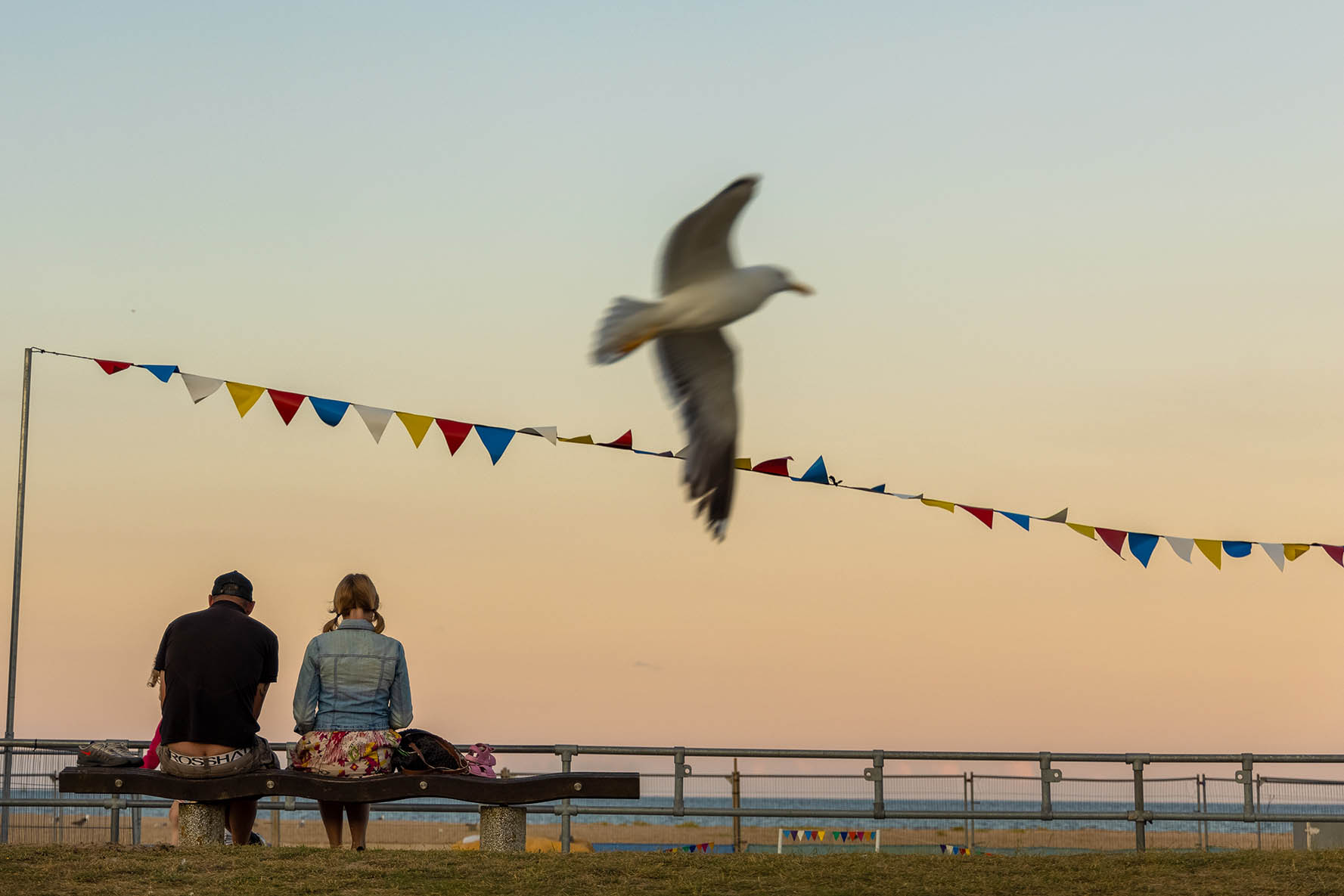
It’s unashamedly a town of candyfloss and naughty postcards, of fairground rides and tea rooms — and of buckets and spades, though less so of the latter than you might think. Perhaps it’s a vagary of the famously-flat East Anglian landscape, but where the sea at most resorts never seems to leave your eyeline, the beach itself at Yarmouth feels removed and slightly distant from the main drag — you almost feel like you have to go looking for it.
That's no bad thing, since the sand itself comes as a lovely surprise when you get to it: huge, spectacular and unspoilt. Hit the high points on the rides at the Pleasure Beach, and you’ll be treated to a view that shows how the swathes of golden strand are backed by dunes, and tucked almost out of sight from ground level. It gives the beach itself a relaxed atmosphere, with the Britannia Pier serving as the most obvious bridge between Yarmouth’s two worlds.
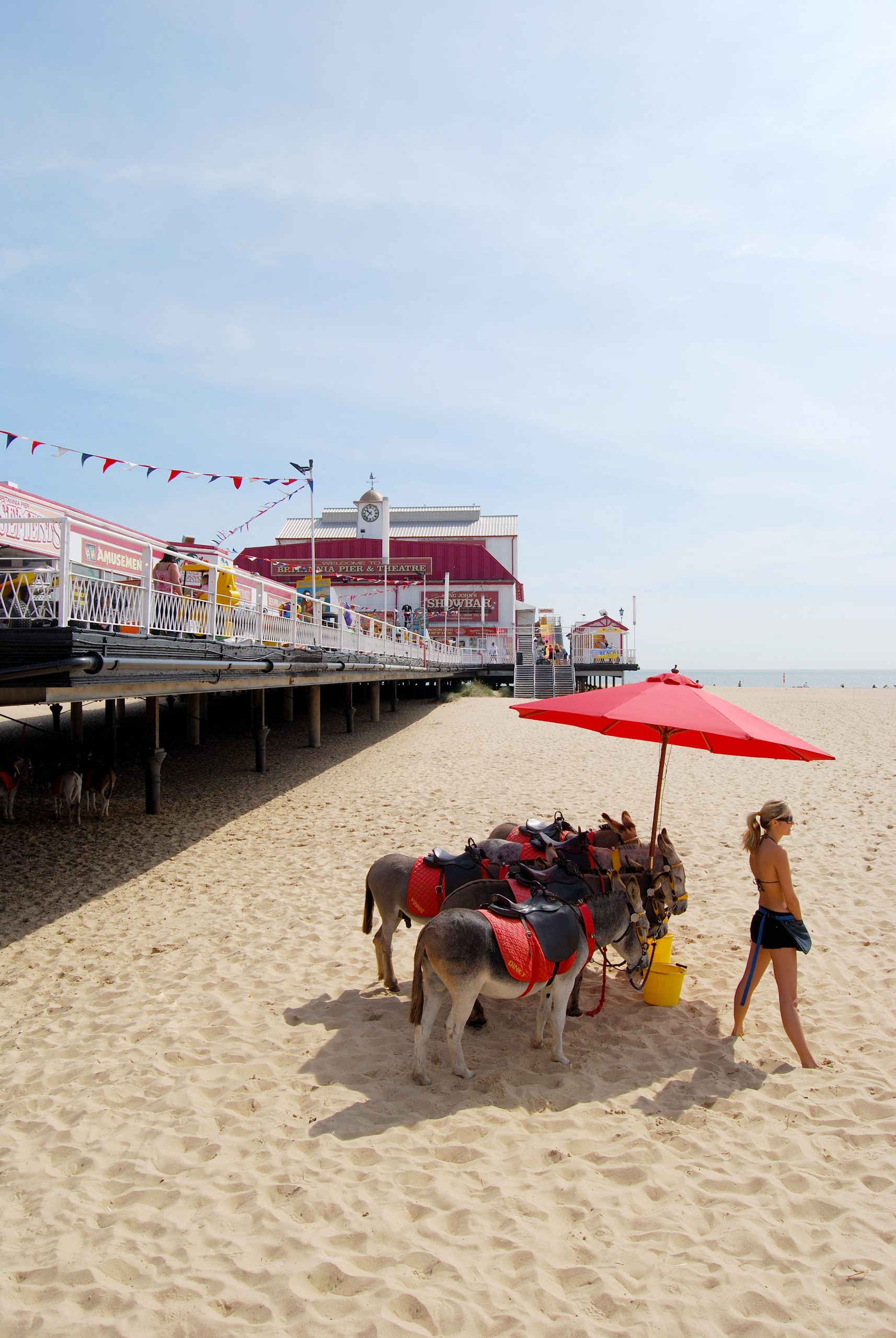
Equally tucked away is Great Yarmouth’s fishing trade, which made this a wealthy spot long before tourism became a factor. Daniel Defoe visited in the early 18th century, concluding that Great Yarmouth was ‘for wealth, trade, and advantage of its situation, infinitely superior to Norwich’. Defoe wasn’t alone in enjoying the place: before the century was out, Yarmouth had become a resort as well as a working town, even as the herring trade continued apace.
Today, the fish trade has mostly moved elsewhere but there are remnants of Yarmouth’s wealth and importance here and there across town: medieval walls and towers, one of Britain’s oldest prisons (now a quirky museum) and, of course, the Victorian and Edwardian tourist infrastructure, from hotels and theatres to the Winter Gardens.
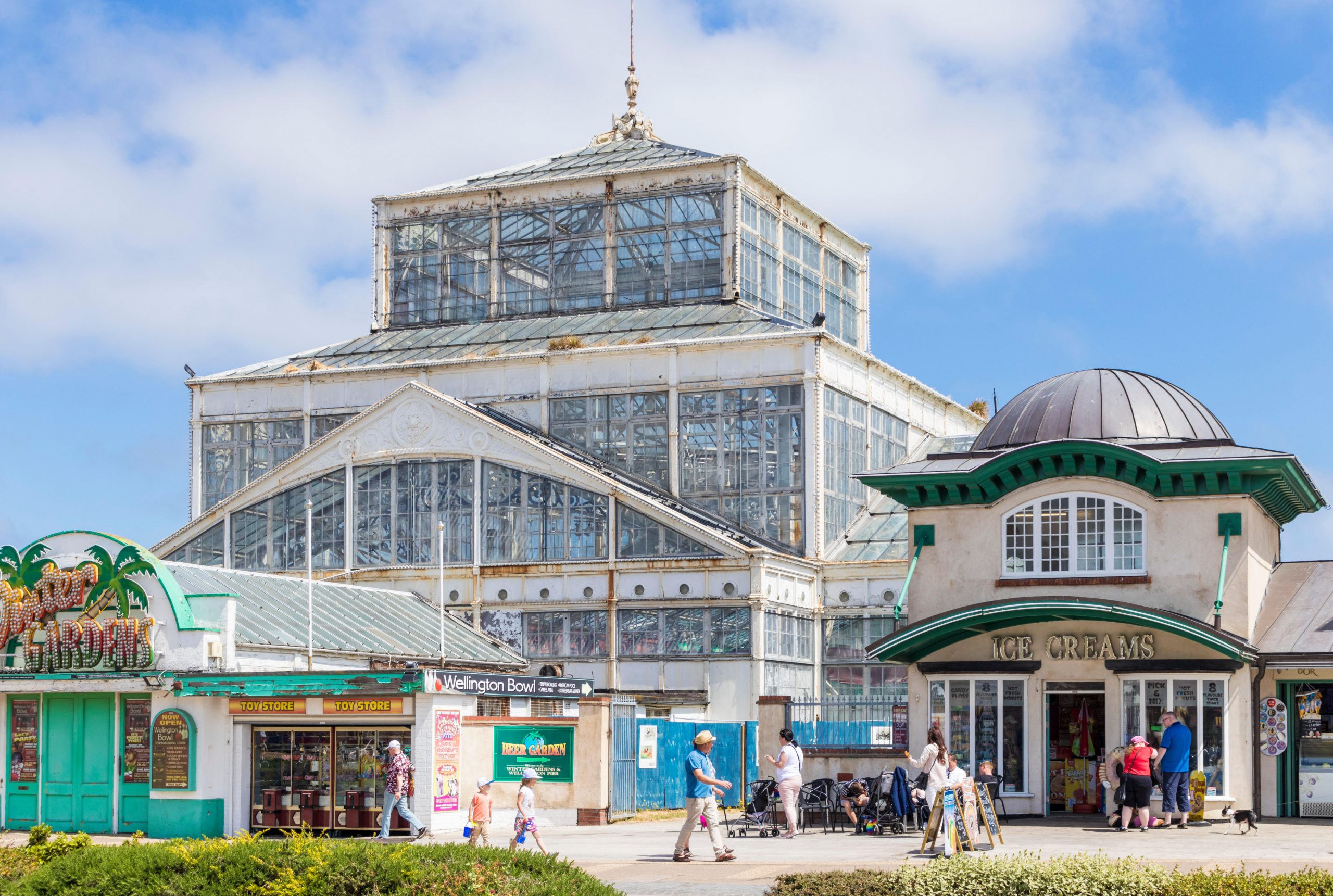
The latter, interestingly, began life in Torquay before being dismantled and moved via sea barge to the other side of the country; legend has it that not a single pane of glass was broken en route. Sadly, the building is now in a state of disrepair; it’s Grade-II* listed, on the Victorian Society’ at-risk list and in great need of rescue — thankfully, that now seems to be on the cards thanks to a recent £10m lottery grant.
Sign up for the Country Life Newsletter
Exquisite houses, the beauty of Nature, and how to get the most from your life, straight to your inbox.
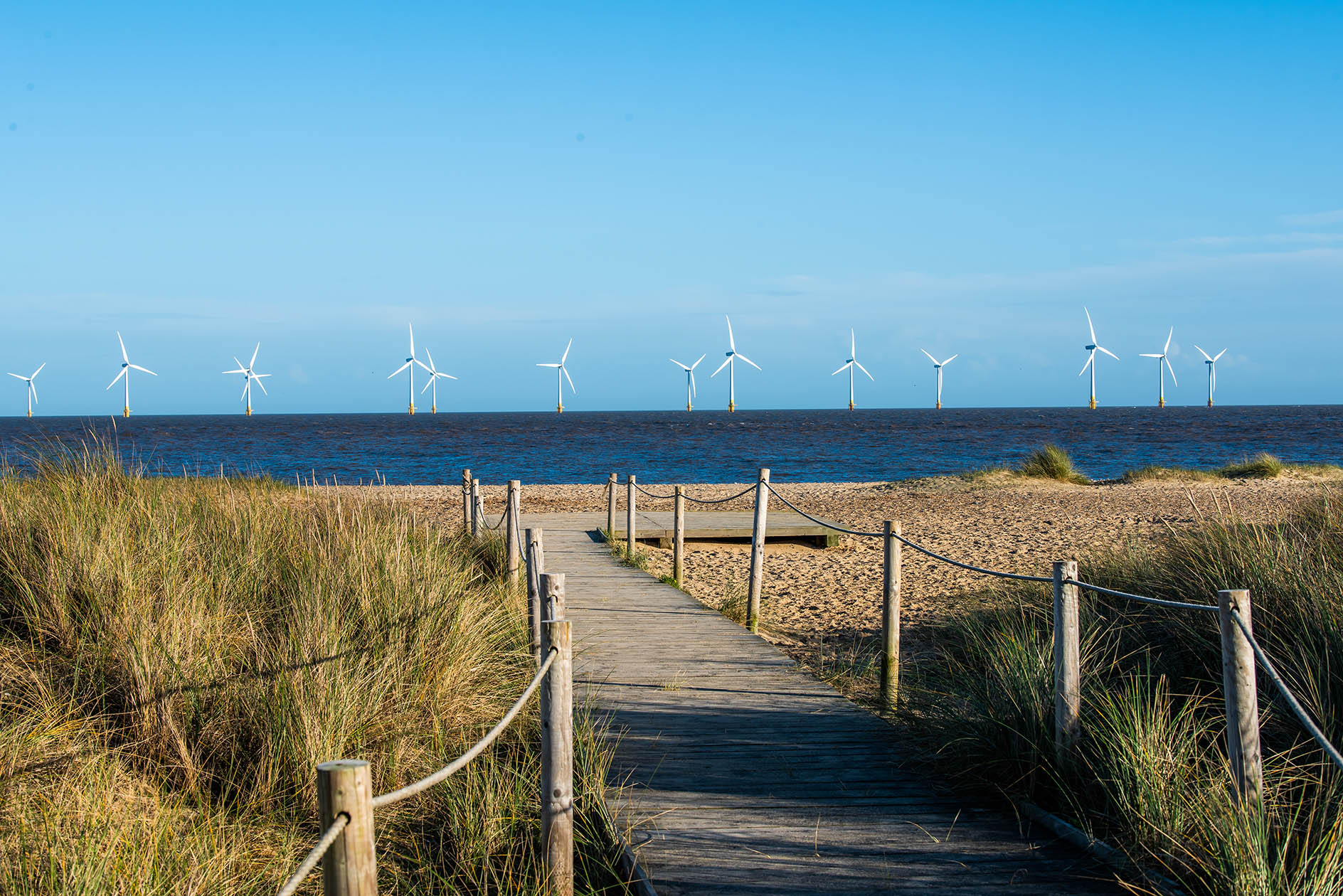
That refurbishment grant seems to be part of a growing trend, for as well as all the traditional seaside attractions on offer at Great Yarmouth, gentrification seems to be coming to this corner of Norfolk — at least for those who want it.
The long-closed Empire — a gloriously handsome, listed Edwardian theatre — is set to reopen imminently as a music, drink and street food hub, and the various museums and arts spaces and festivals are making efforts to broaden increase the town’s appeal.
Even the places to stay are enjoying something of a renaissance, just as we rediscover the British seaside: the town is full of hotels and B&Bs, of course, but we made our base a few minutes inland at the wonderful Fritton Lake – which you can read about below.
Where to stay
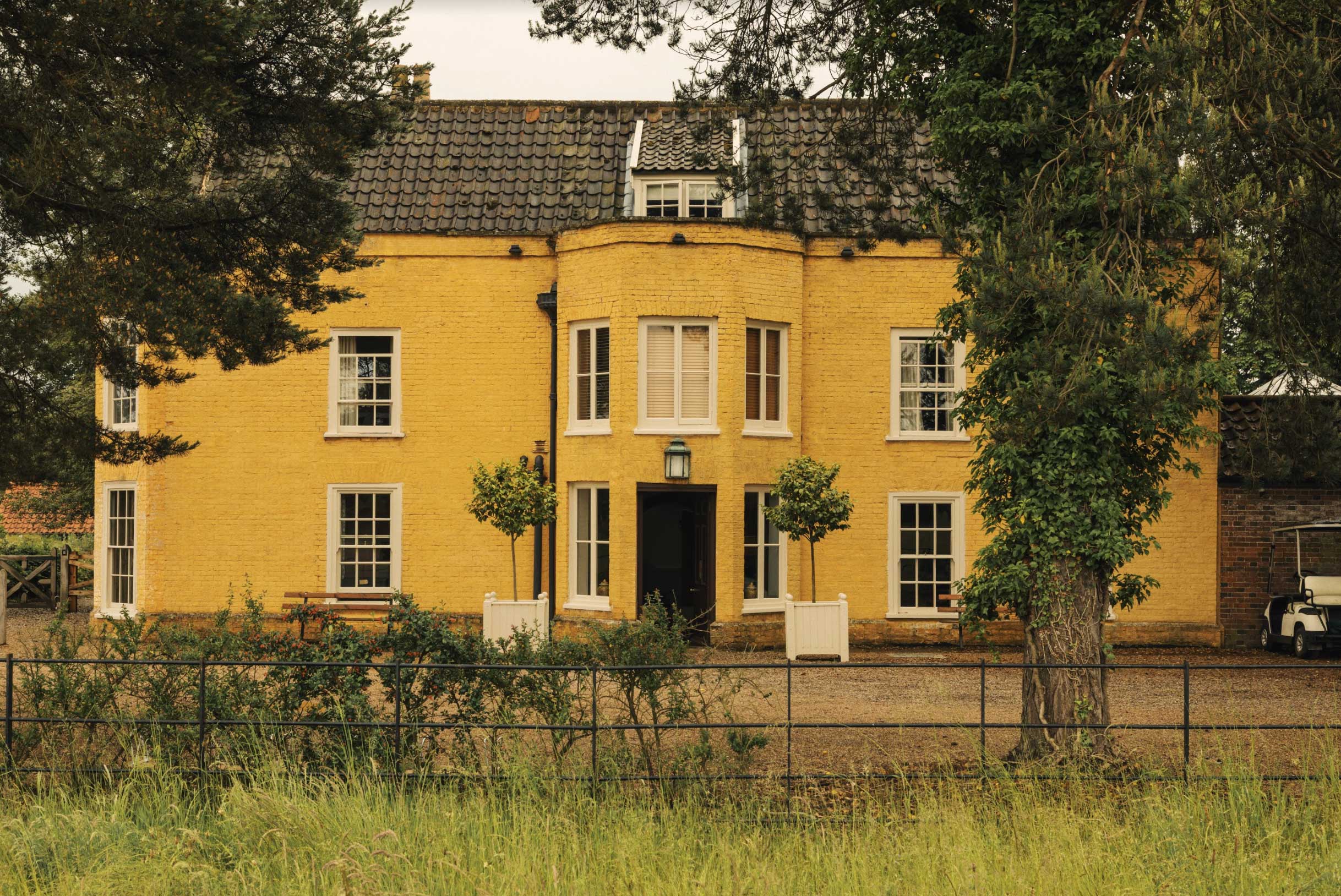
Part of the Somerleyton Estate, Fritton Lake is a truly idyllic spot beside the stretch of water that marks the Norfolk-Suffolk border. It’s part country hotel, part woodland retreat, part nature reserve and part private member’s club — one that aims rather unashamedly at being a sort of Soho Farmhouse for Norfolk.
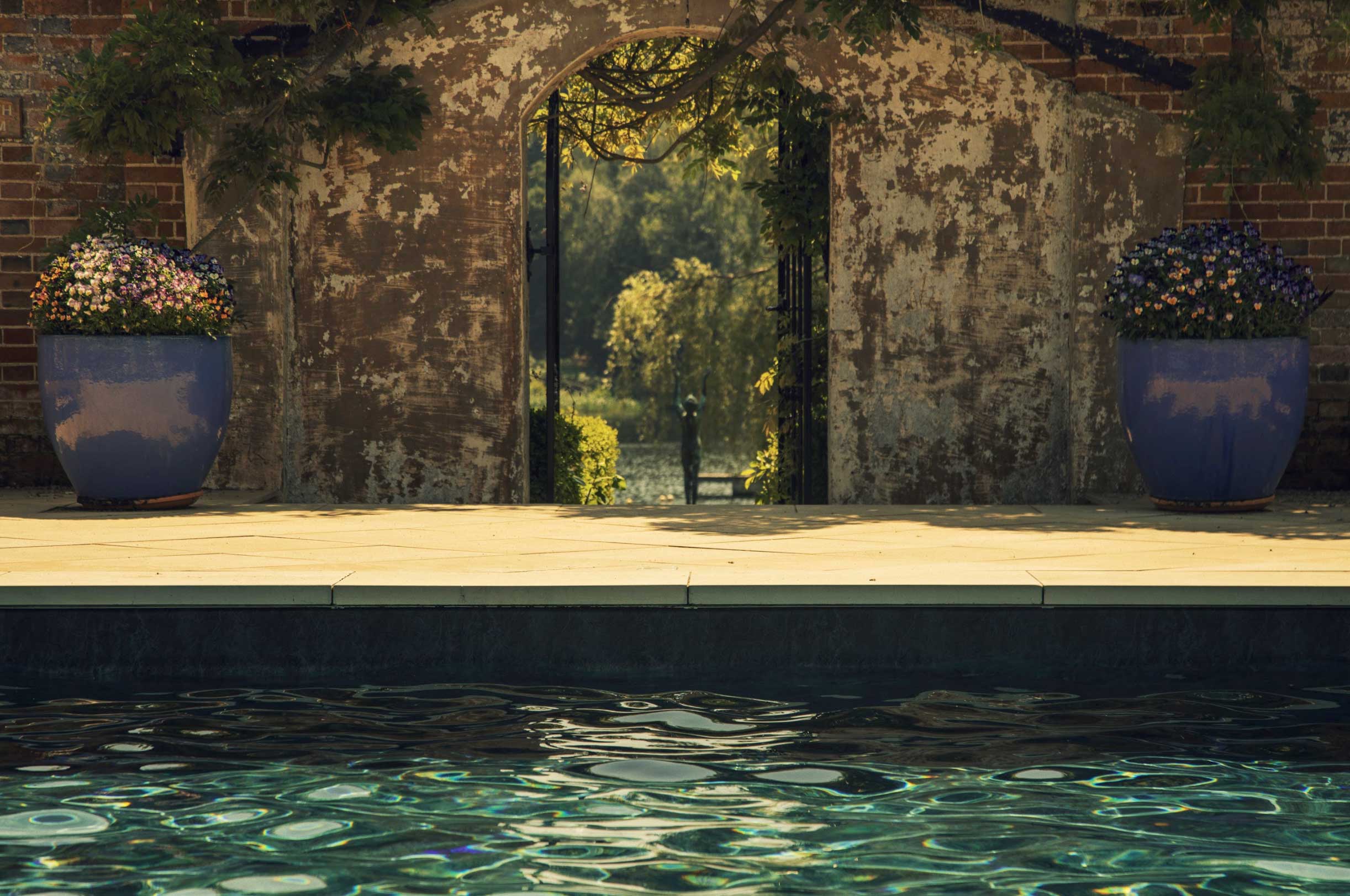
While it’s now closed to non-members on day trips — something which used to be popular among locals — you can still book a stay here in one of the rooms and benefit from the glorious swimming pool set in a Victorian walled garden, play tennis (on your choice of grass or clay courts), go boating on the lake, play ‘foot-golf’, have a spa treatment (or a session in the floating sauna), or... well, you get the idea.
There's also an opportunity for ecotourism, with a £20 tour of the estate conducted via a boat ride and a thrillingly bumpy ride in the back of an ex-army off-road vehicle. You can see the huge efforts Fritton Lake's owner, Lord Hugh Somerleyton, has made to re-wild hundreds of acres of this estate, and to farm sustainably across the rest. If you're lucky, you may even get to meet the recently-arrived herd of water buffalo.
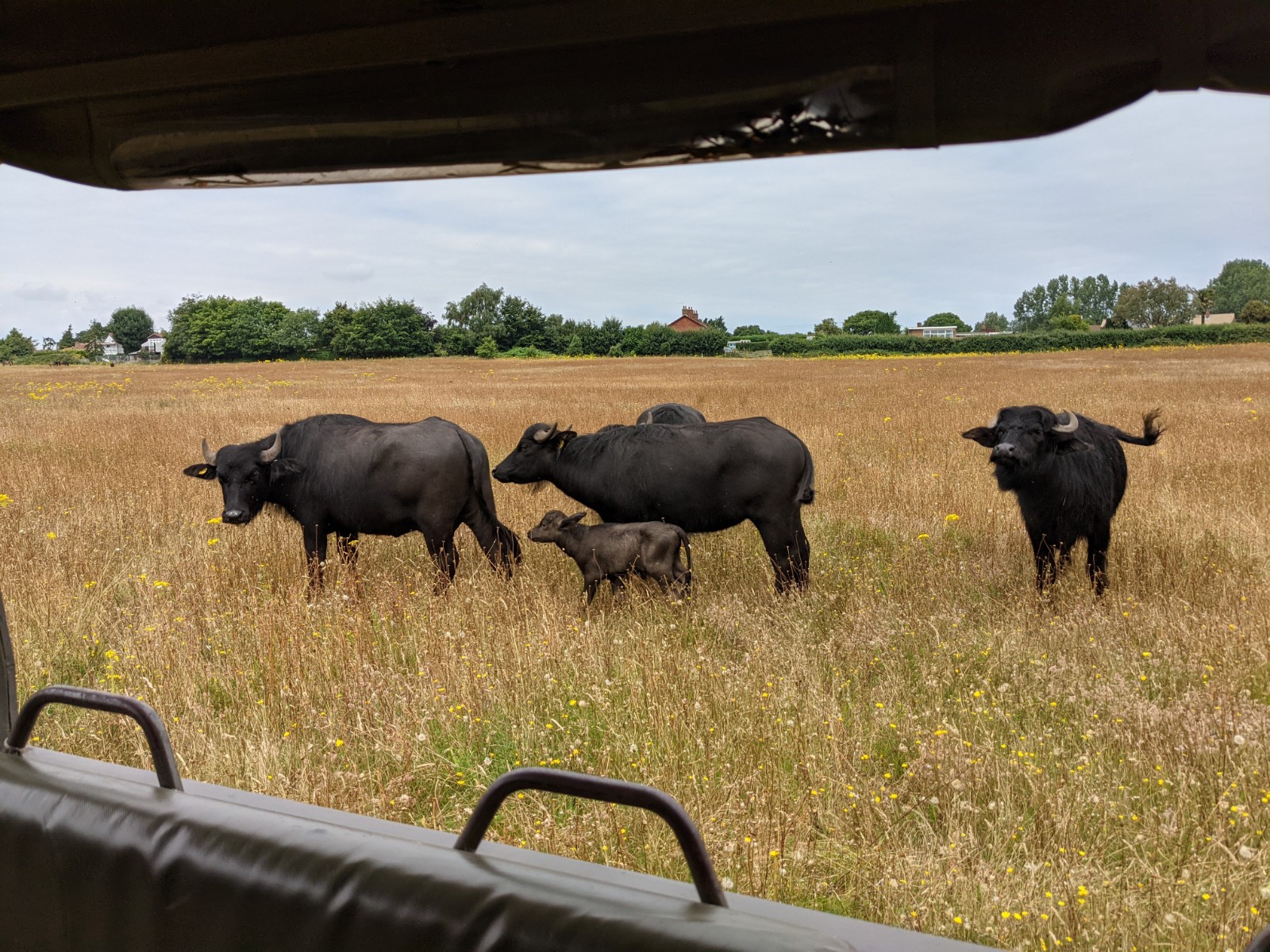
To put it simply, you'd never be bored, yet you could also happily sit back and enjoy the atmosphere while the children wear themselves out in the adventure playgrounds.
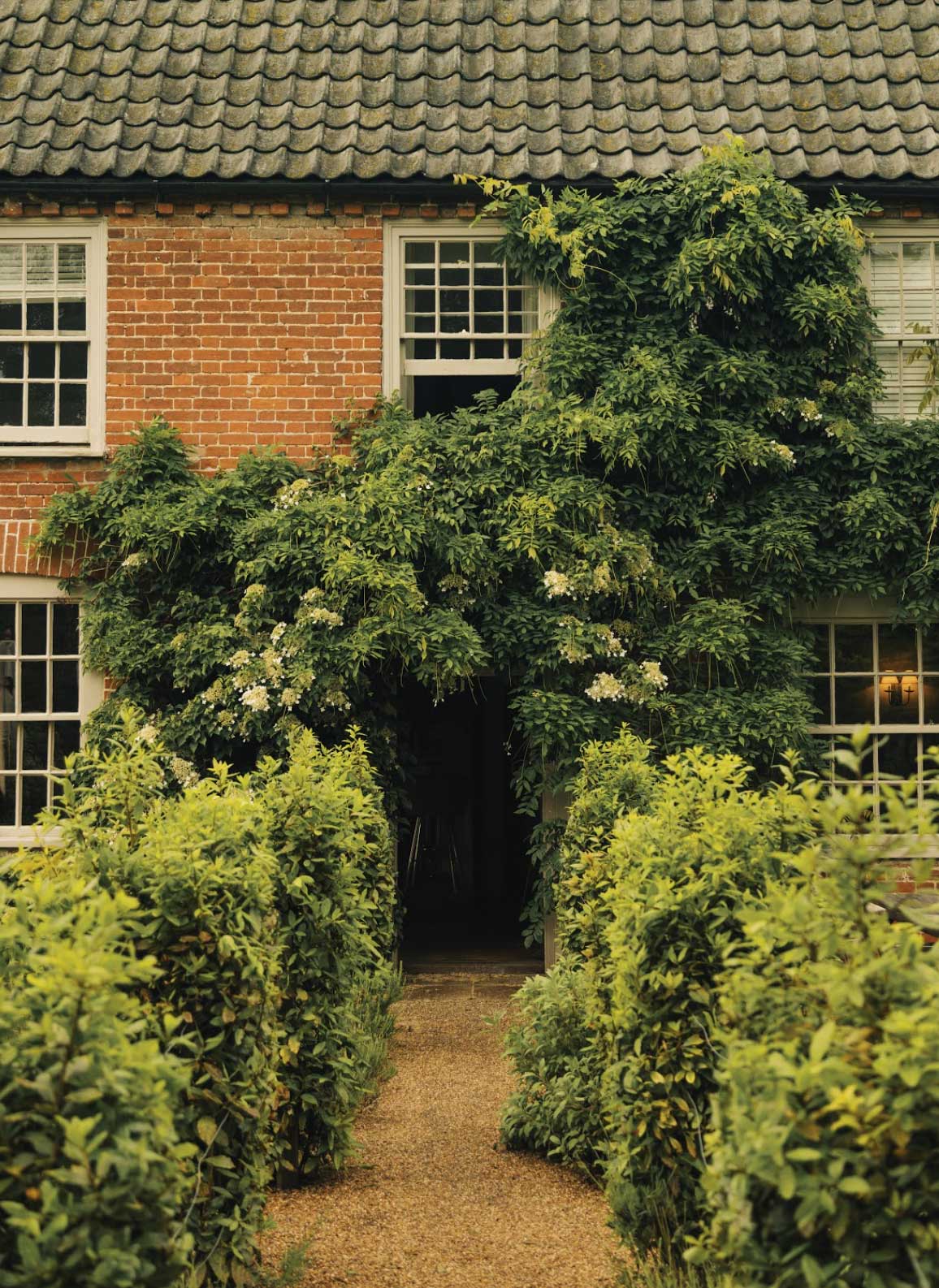
There are cabins in the woods for those wishing to be close to nature, but we stayed in a family room on the top floor of The Clubhouse, the former manor house that’s the club’s hub and hotel.
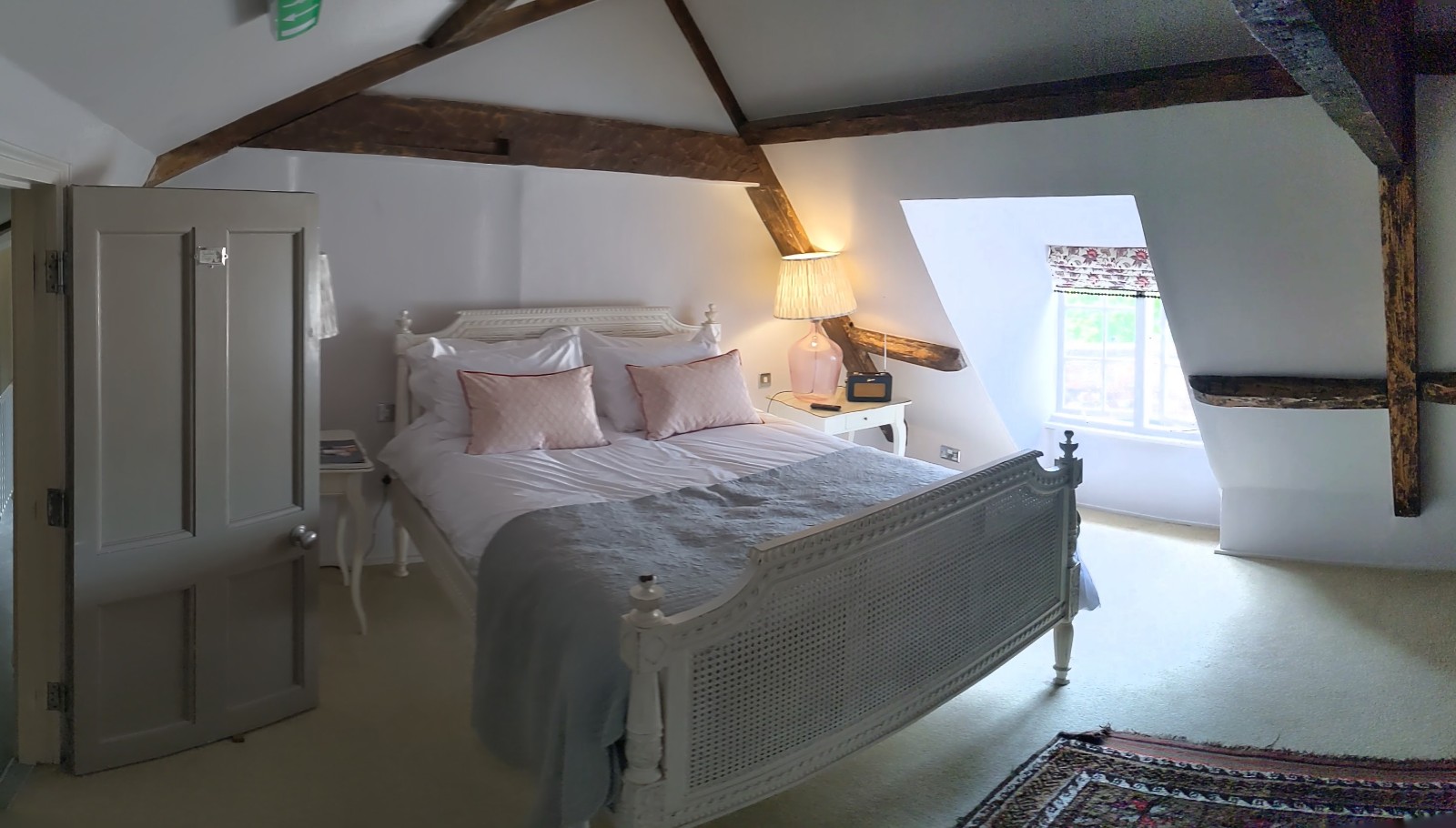
Having arrived worried that it might be the usual oversized room with multiple beds shoehorned in, we were delighted to find that it was effectively a small flat with a magnificent bathroom, two bedrooms and a separate sitting room.
Furnishings and beds were comfortable, traditional and just right — this is clearly a place that’s been put together by people who really understand what you do and don’t need when staying away from home.
Rooms at Fritton Lake Clubhouse start from £160 per room per night, based on a minimum two-night stay. Prices for a self catering stay in a 2-bed Retreat start from £1320 (based on arriving 20th September for 4 nights). Full membership to Fritton Lake is £595 per adult; clubhouse membership is £50. Visit www.frittonlake.co.uk, call 01493 488 192 or email frittonarms@frittonlake.co.uk
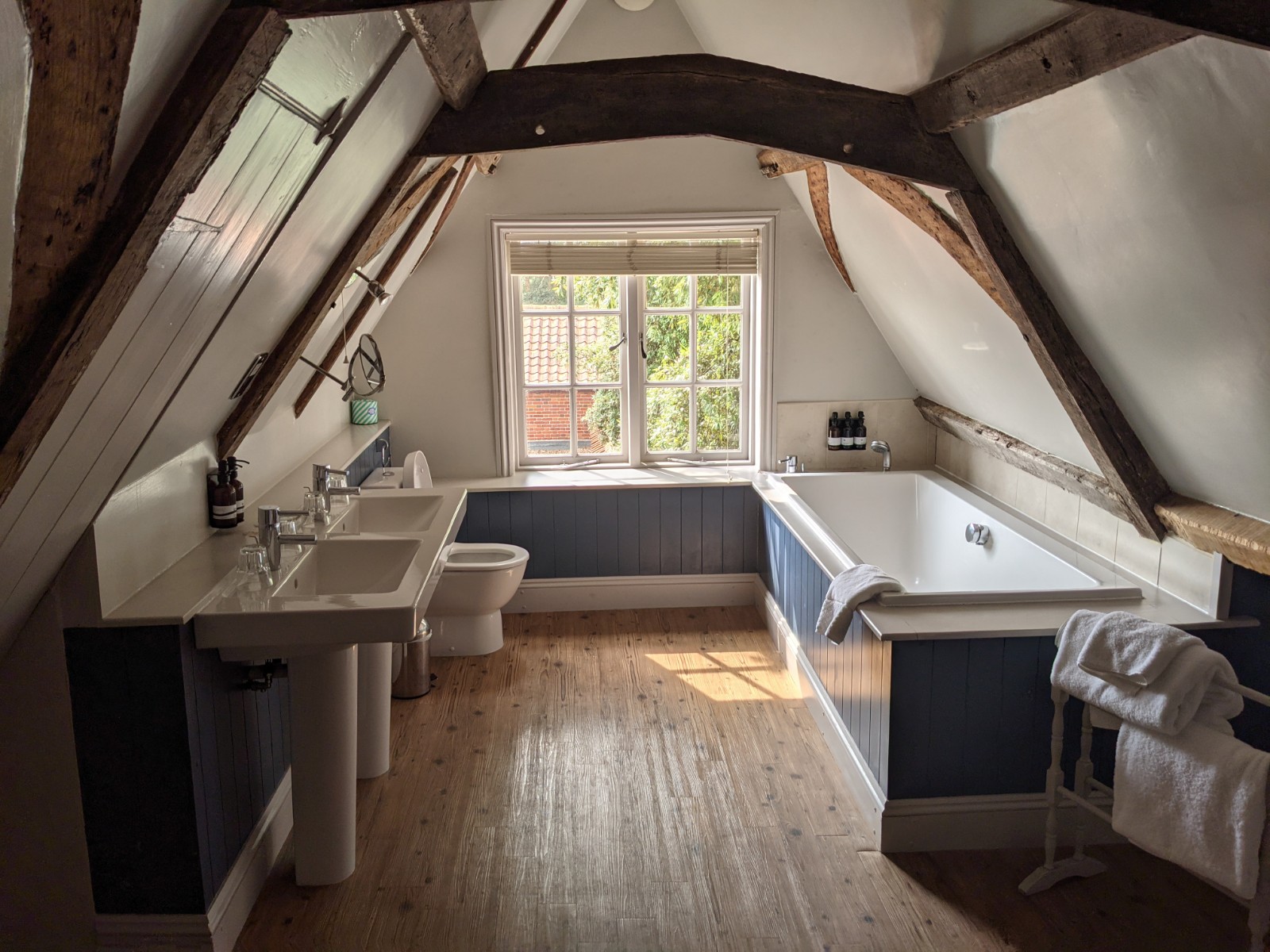
What to eat
Down at the seaside, we stopped off at Sara’s Tearooms, right on the at the Pleasure Beach gardens, which were a real pleasure indeed. This is a real family business, and the care shows: the eponymous Sara has owned the place since 1999 and now runs it with her son, Matt, whose pride in serving up food that’s a cut above the usual seaside fare is clear to see. Chicken goujons, for example, were hand-made with fresh breast meat rather than the frozen, reconstituted stuff served up by many seaside places; while the cakes and scones are all baked fresh daily by Sara herself.
The setting is worth a mention too: the planters around the outdoor area area clearly a labour of love, and right next to the gardens themselves — it’s here that the brass band was playing while we enjoyed lunch. Sara's Tearooms — www.thetearooms.co.uk
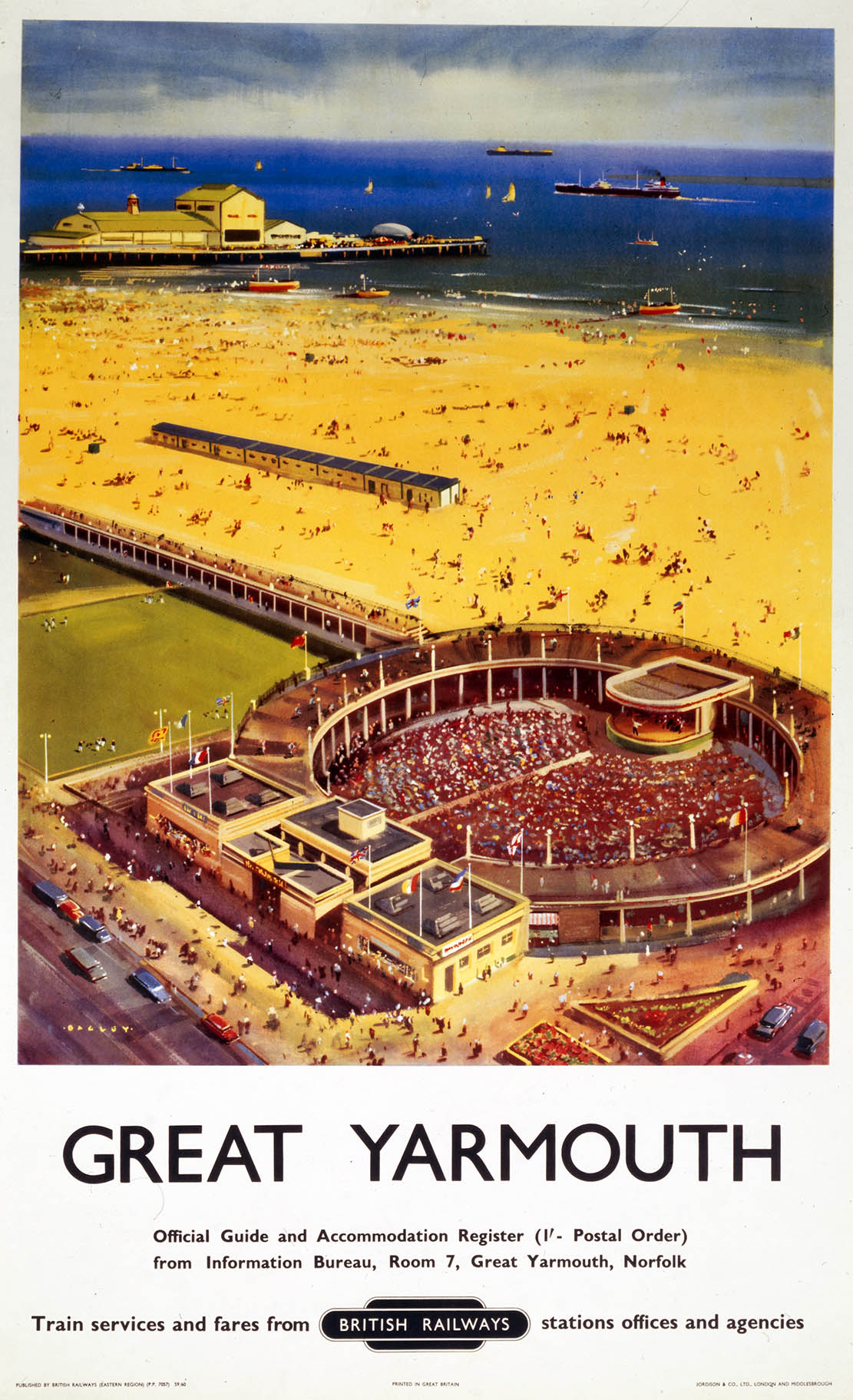
Dinner at The Clubhouse in Fritton Lake is quite something. The restaurant is led by head chef Chris Bartlett, who trained under Heston Blumenthal at the Fat Duck, and thus it’s not a great surprise to find some real show-stoppers on the menu. A starter of sweet-and-savoury doughnuts, cooked with beef fat and filled with pea pureé, were a particular surprise and a delight.
The children were delighted with towering, hand-made burgers, though my crab mac-and-cheese main and my wife’s quiche had us both looking enviously across at fellow diners who’d ordered the Cote de Boeuf rib eye with cavalo nero and herb chips.
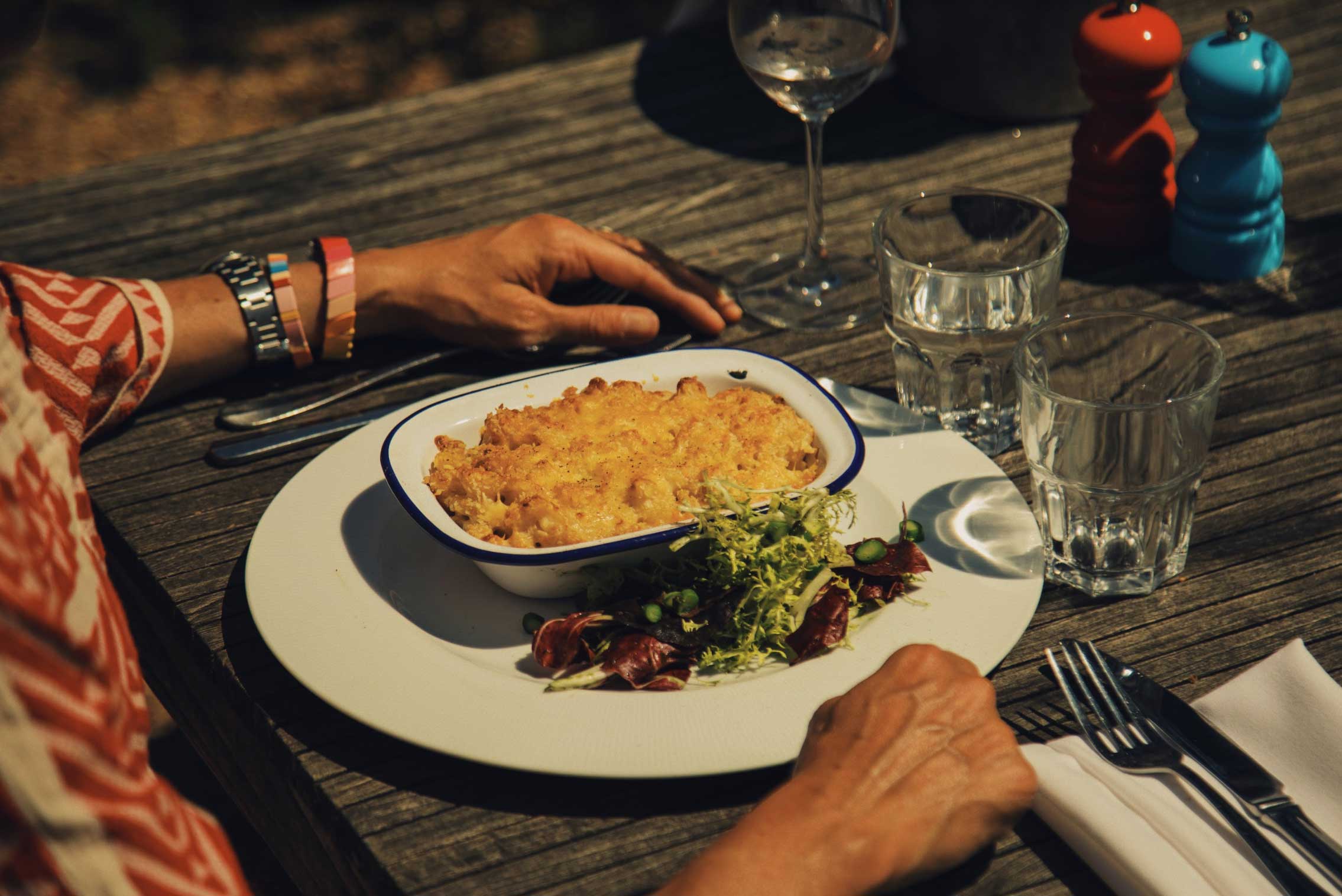
Things to do
Top of the lengthy Great Yarmouth list — for your children, but probably also for you — will no doubt be the Pleasure Beach itself. Unlike many permanent funfair-style places where each ride leaves a hole in your wallet, there’s instead a flat-fee of £13.50 for unlimited rides in a three-hour session.
Even on a hot weekend in summer we found that queues were either absent or minimal (a relief after the likes of Thorpe Park and Legoland), meaning that you could keep going round and round on the old-school, wooden rollercoaster that’s the star of the show. pleasure-beach.co.uk
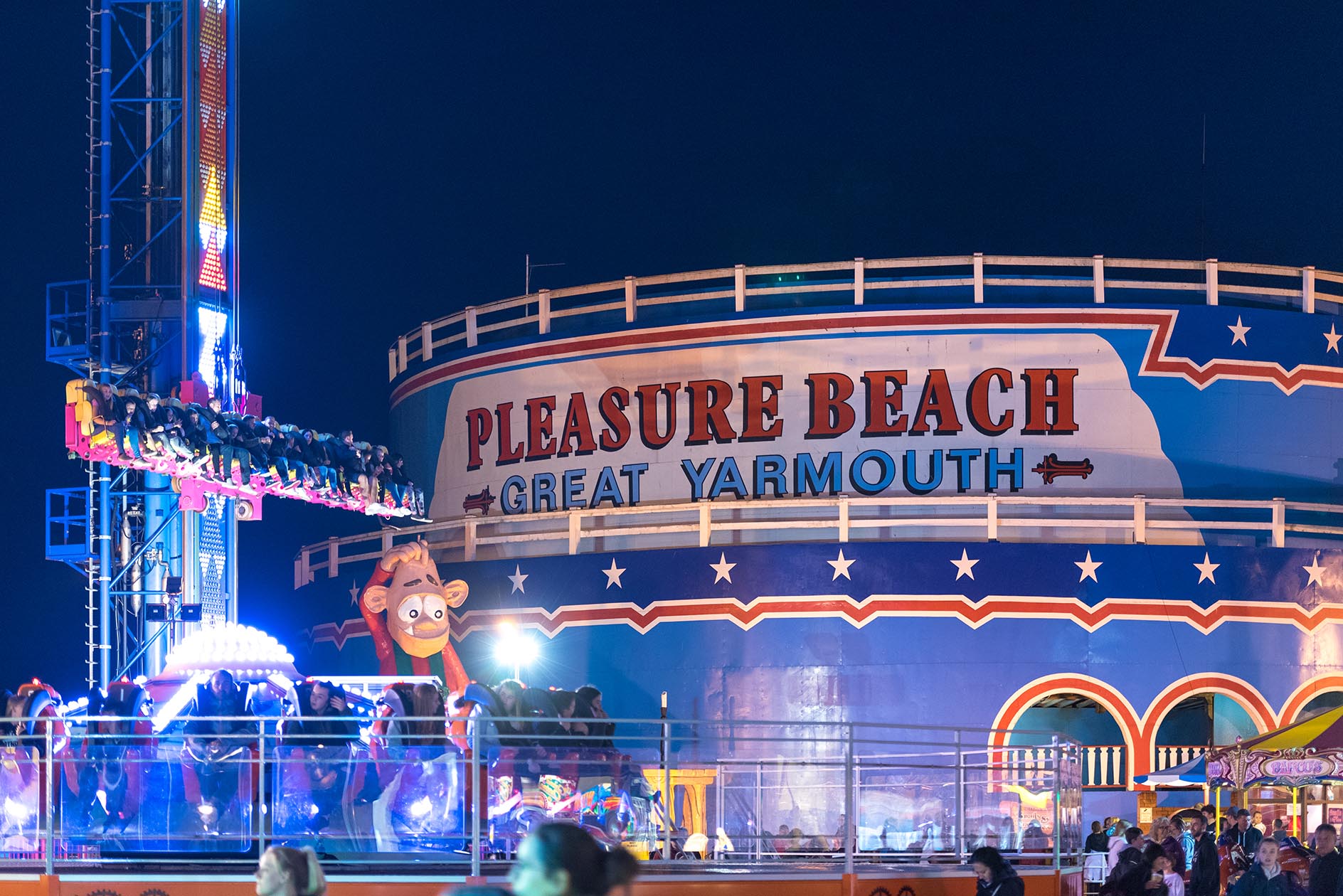
If all that sounds too stomach-churning, the Giant Wheel — popularly known as the Yarmouth Eye — (www.greatyarmouthwheel.com) is the perfect antidote, offering wonderful views of the whole area.
If you’ve not been to a circus for a while, then Great Yarmouth’s Hippodrome Circus is a must. It’s been here in the same location for over a century, and has been run by Peter Jay and his sons since the early 1980s.
Magic, motorbikes, a unique watery surprise (for which the place is famous) all on the bill, plus a juggling act featuring a Mexican firing half a dozen ping pong balls into the air from his mouth. hippodromecircus.co.uk

For something removed from such traditional seaside entertainment, nearby Winterton-on-Sea and Gorleston-on-Sea — the former to the north, the latter to the south — are charming spots with lovely beaches that are ideal for enjoying the sea and sand in calm and peace.
And for a more cerebral challenge, the maze at Hirsty’s Fun Park is devastatingly tricky to get your head around, and with the corn field that it’s cut into reaching at least 6ft in most places, a true test of memory and nous.

The rest of the park is also fun, if a little tired around the edges: there are pedal go-karts, bouncy castles and a take on crazy golf in which you use a tennis ball propelled by a green welly on a stick — a true Norfolk experience. hirstysfamilyfunpark.co.uk
All of this, though, is just the start. There's crazy golf, the loftily-named Venetian Waterways, the endless miles of beaches, the fun parks and arcades. Then, inland, there are the villages and medieval churches dotted throughout Norfolk, several nature reserves, the famed Broads, and — should it rain — the lovely city of Norwich is just 20 miles away.
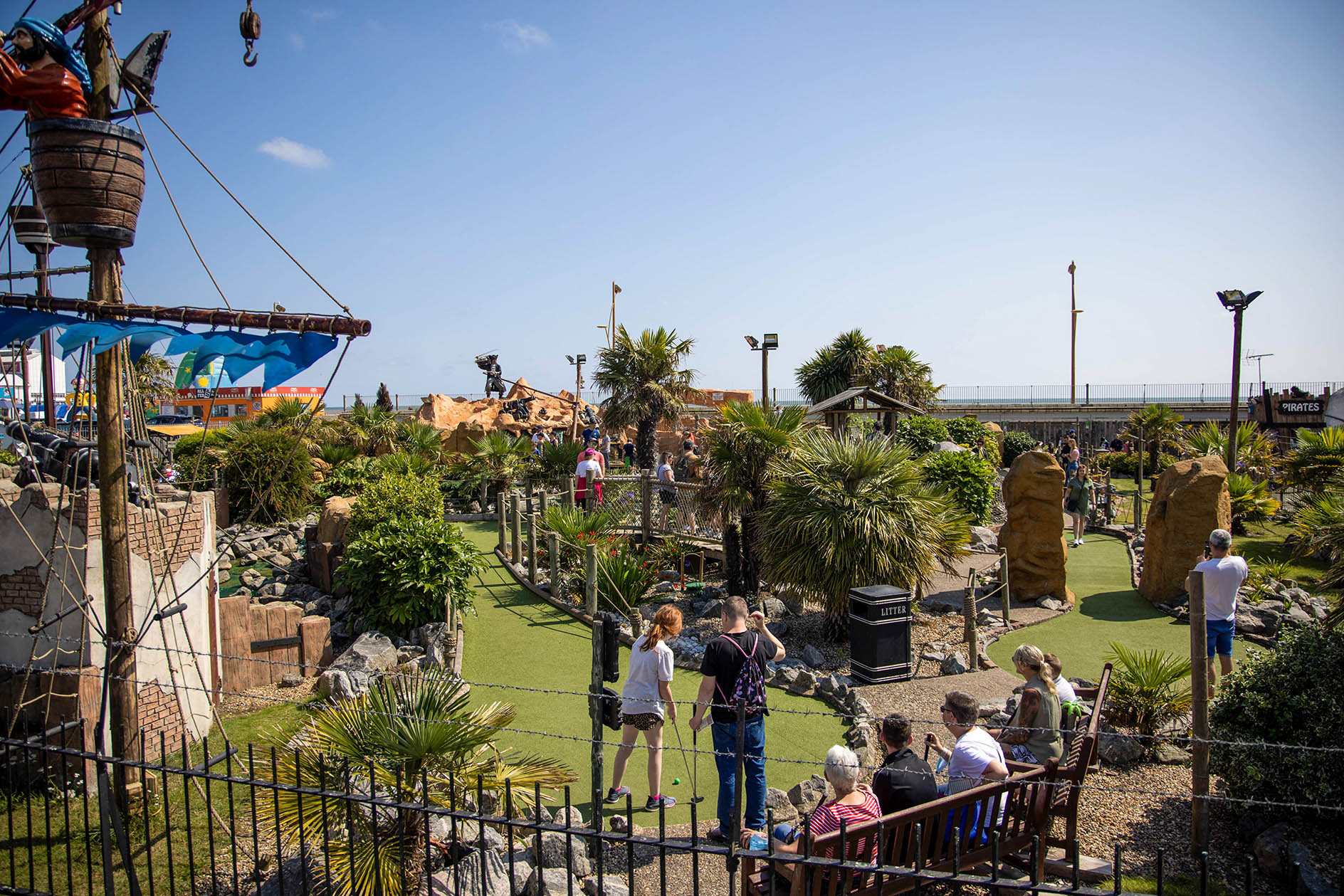
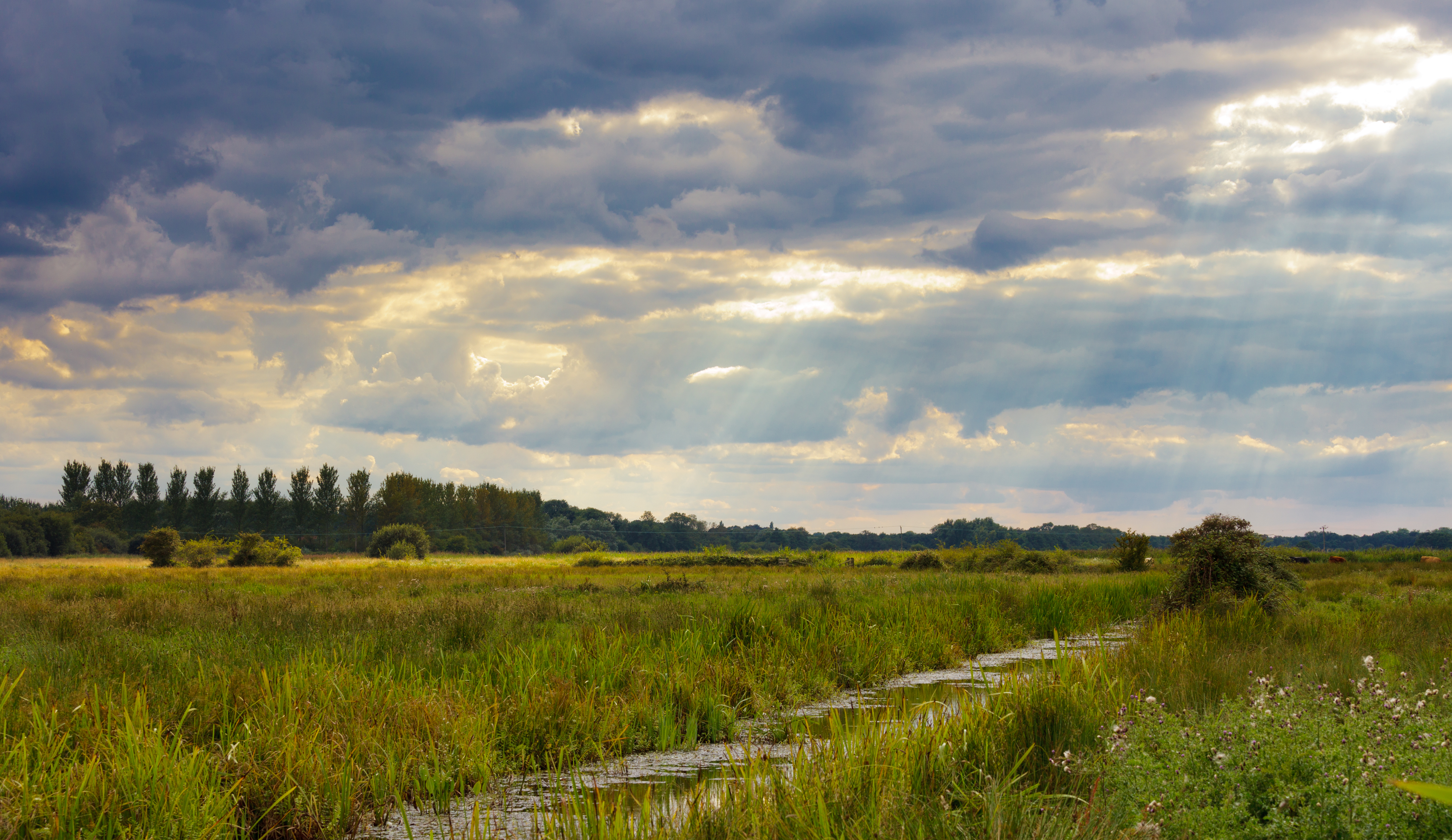
Credit: Steve Bjorck / Getty
The £5 million expansion of the Broads National Park called a 'unique opportunity’ by Sir David Attenborough
Thanks to the National Lottery Heritage Fund and an incredible fundraising effort from the public, Carlton Marshes will be expanding

Credit: bob langrish / Alamy Stock Photo
Let’s ’ear it for the Norfolk terrier, the dog that can't help but cheer you up
These feisty little dogs, the smallest of the terrier family, are short of leg, but long on personality, finds Kate
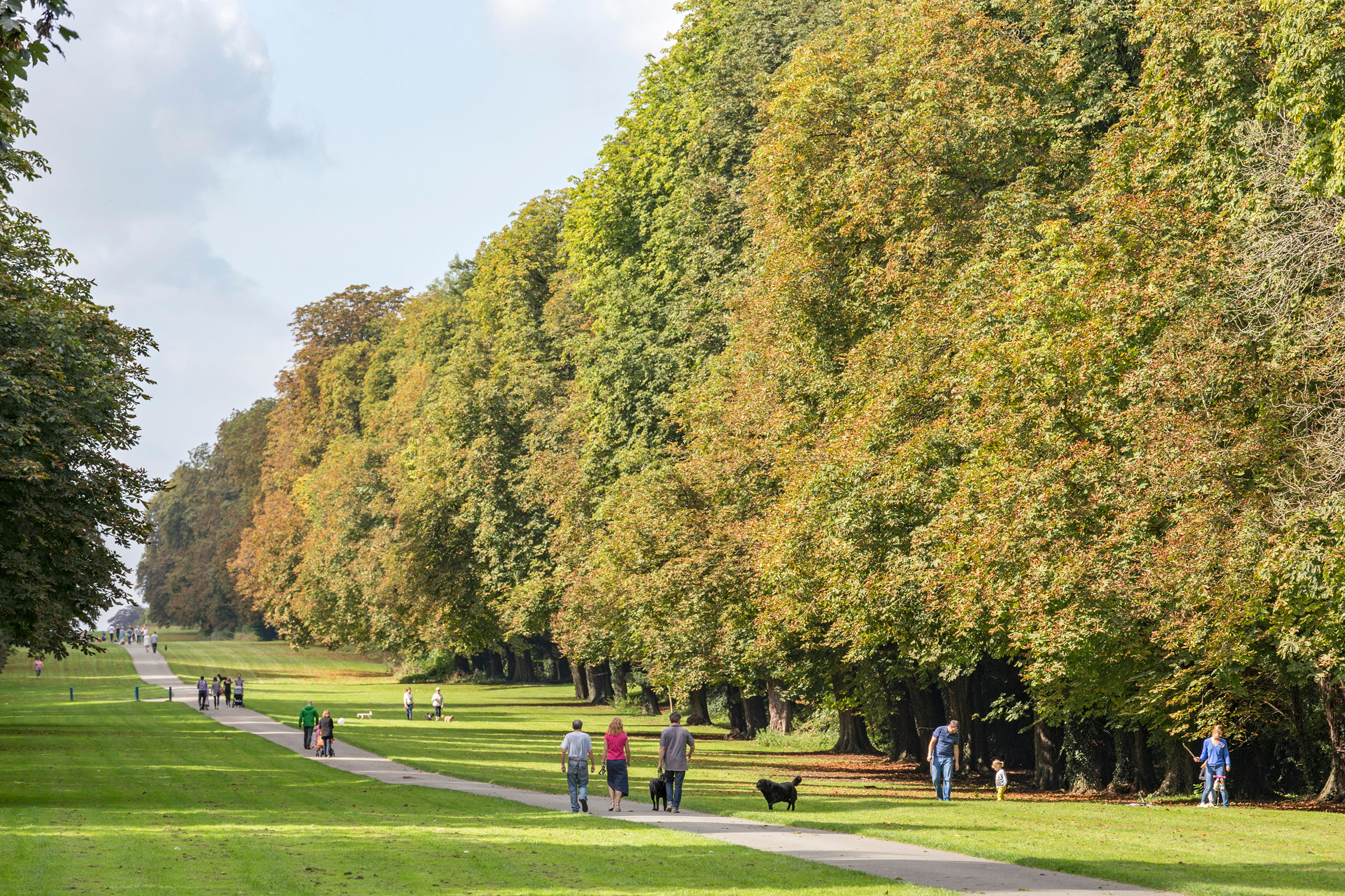
Cirencester Park, still full of 'the amiable simplicity of unadorned nature' 200 years after its creation
Fiona Reynolds strolls through Cirencester Park and beyond into the Gloucestershire countryside.
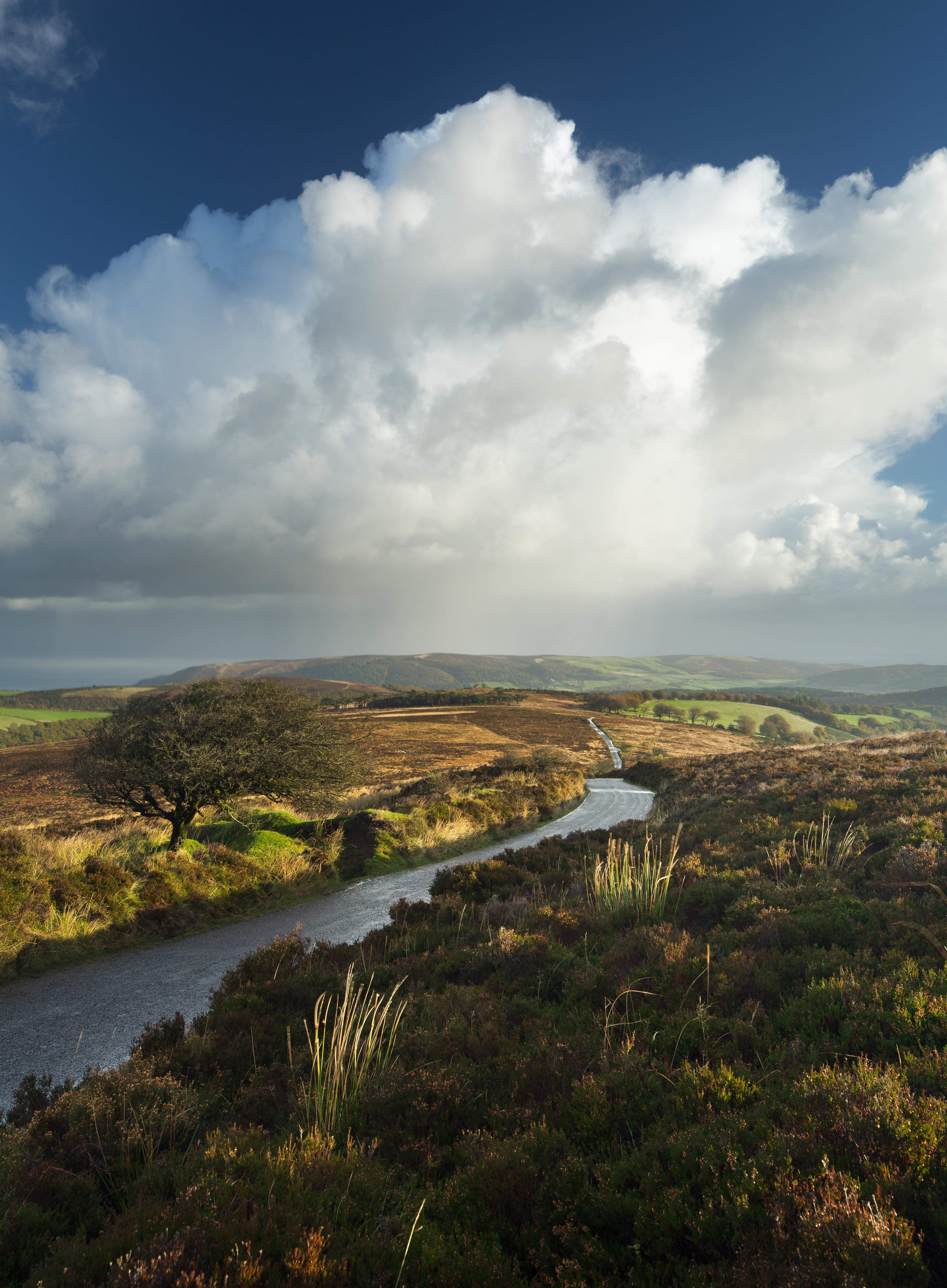
The 'massive overhaul' needed in National Parks and AONBs to rejuvenate our living, breathing, farming landscape
Seventy years on from the National Parks Act 1949, the Landscapes Review has called for sweeping changes in how our
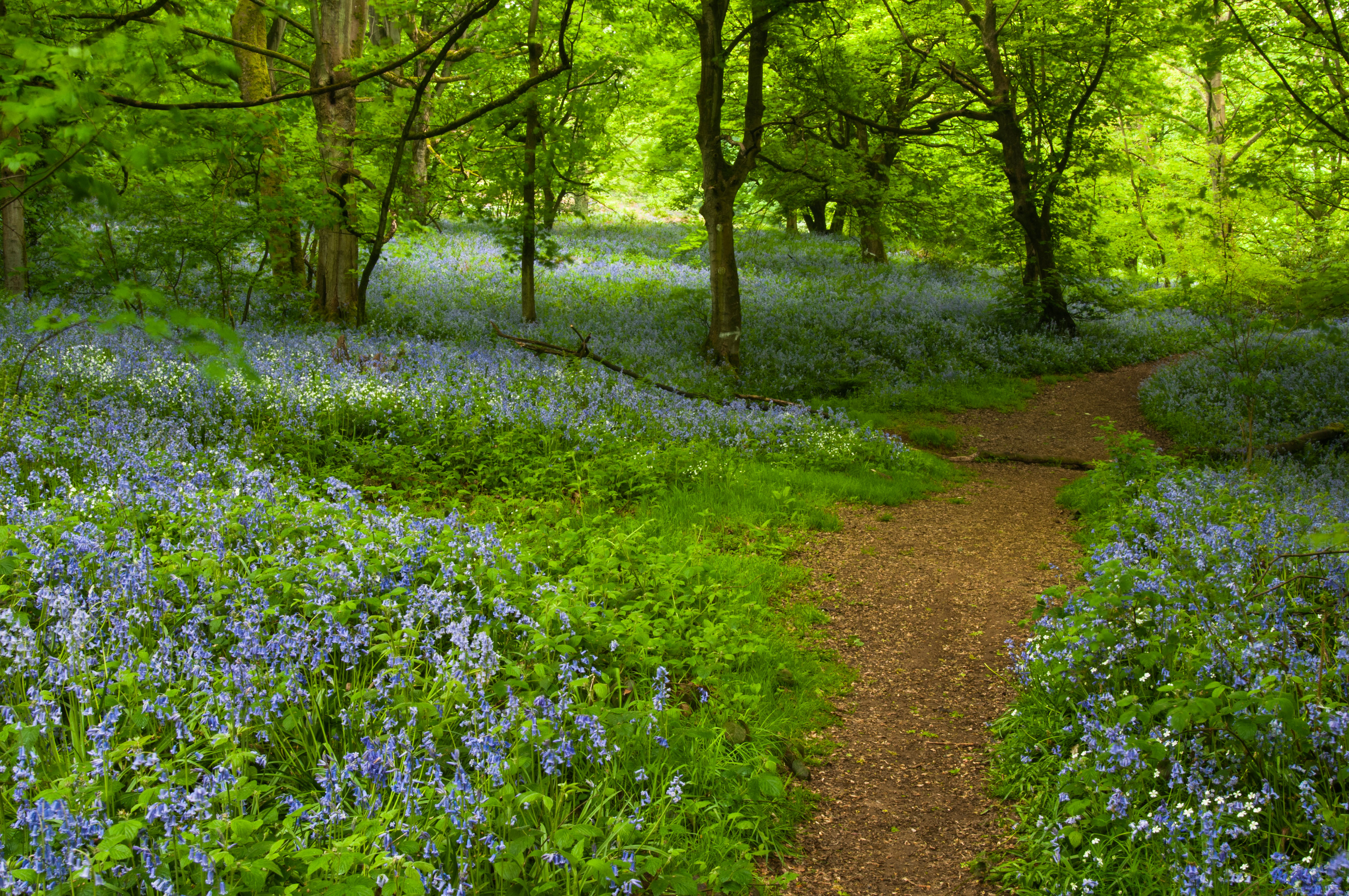
A walk through Badley Woods: 'My memory, is on fire, and I wander through the woods looking for places half-remembered, but intensely felt'
A return to scenes from a carefree childhood rekindles happy memories for Fiona Reynolds.
Toby Keel is Country Life's Digital Director, and has been running the website and social media channels since 2016. A former sports journalist, he writes about property, cars, lifestyle, travel, nature.
-
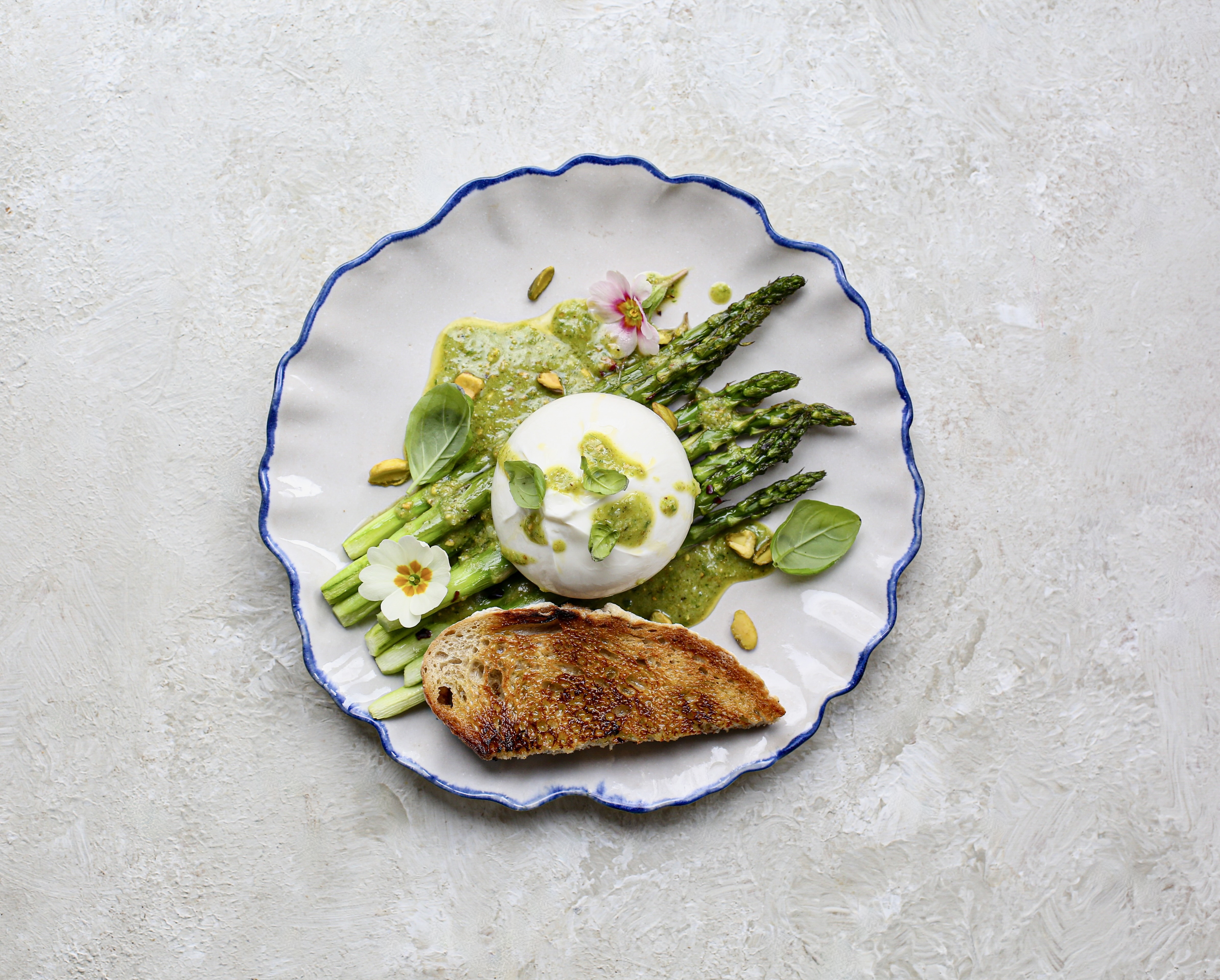 Two quick and easy seasonal asparagus recipes to try this Easter Weekend
Two quick and easy seasonal asparagus recipes to try this Easter WeekendAsparagus has royal roots — it was once a favourite of Madame de Pompadour.
By Melanie Johnson
-
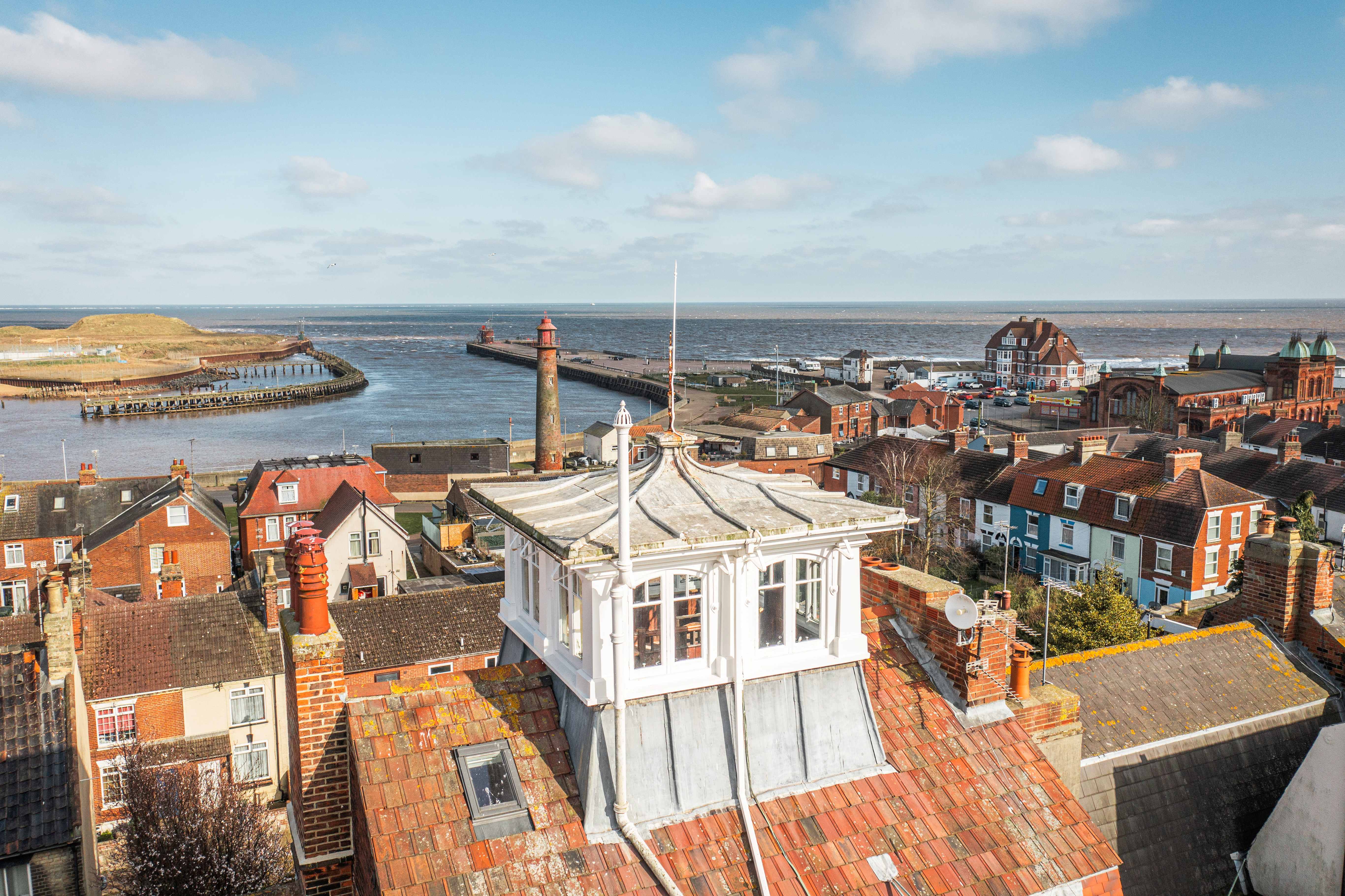 Sip tea and laugh at your neighbours in this seaside Norfolk home with a watchtower
Sip tea and laugh at your neighbours in this seaside Norfolk home with a watchtowerOn Cliff Hill in Gorleston, one home is taller than all the others. It could be yours.
By James Fisher
